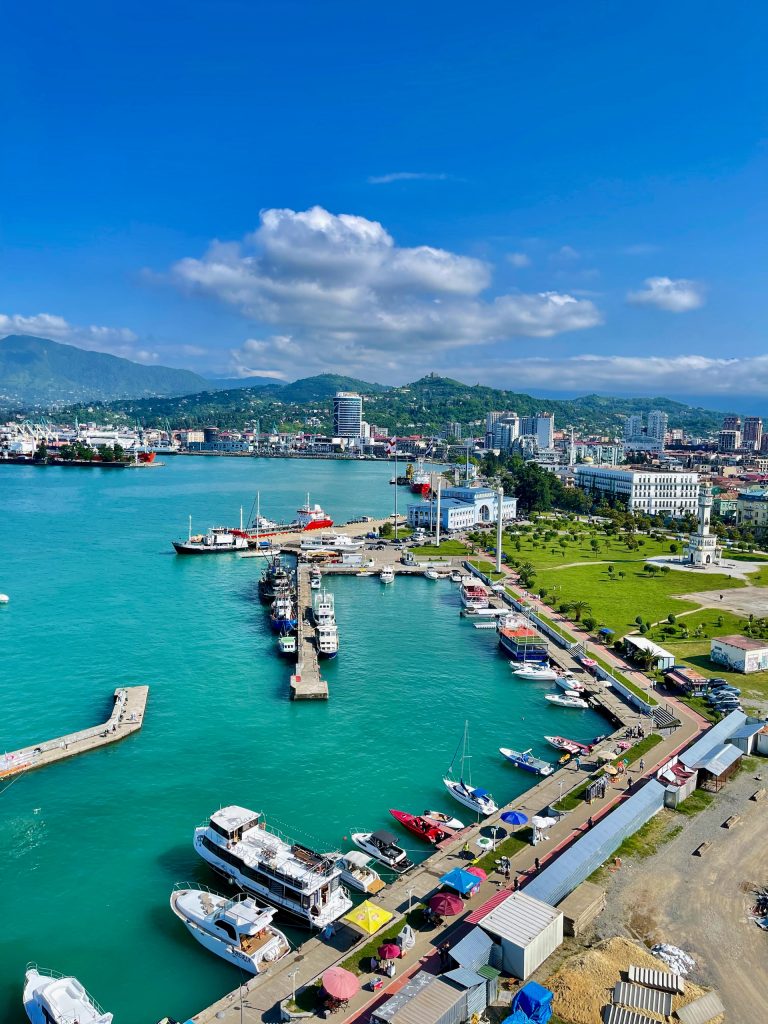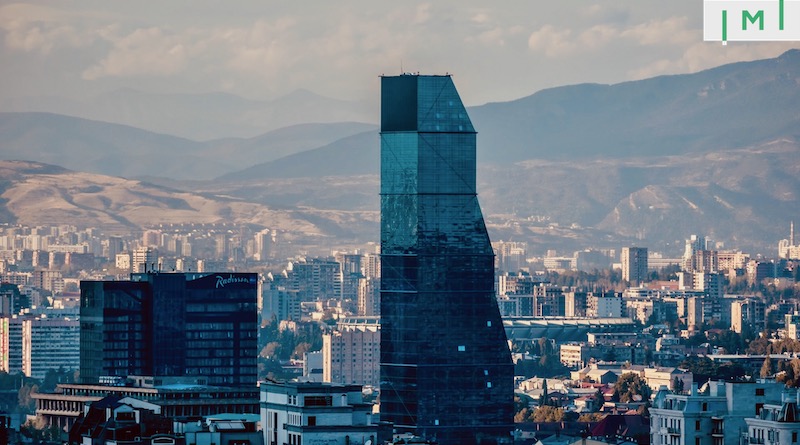Georgia: The Residence by Investment Market’s Best Kept Secret
By Contributor
A new multipolarity is fast taking shape across the investment migration landscape. Georgia could emerge as its biggest beneficiary yet.
The new “free world”
A universal talking point nowadays is that of a shift in the post-war balance of power. This phenomenon is already beginning to play out in the field of immigration. Global citizens on the move have become far more receptive to planting their flag in places previously off the radar. Gone are the days of Western nations alone hogging the limelight as the most sought-after destinations for outbound émigrés. Russia’s invasion of Ukraine, coupled with the COVID-19 outbreak, has seen prospective investor migrants re-think their perceptions of Europe. Those mulling overseas relocation are increasingly coming to terms with the breadth of viable, non-legacy brand options at their disposal.
There is a whole world out there beyond the handful of English-speaking, liberal democracies that routinely come to mind. If a silver lining were to be drawn from these past few tumultuous years, it is the lopsided migratory and naturalization trends that are unfolding before our very eyes. Whether it be Americans renouncing one of the world’s most coveted passports in record numbers, the unprecedented outflow of Russians to erstwhile colonies they once looked down upon, or Britons laying down large sums to cement a foothold in post-Brexit Europe, the whirlwind of unfathomable dynamics taking the entire RCBI industry by storm has conjured up a newfound sense of buoyancy among service providers.
A binary outlook of nation-states as either developing or developed is counterintuitive when it comes to domicile diversification. Countries vying for European Union (EU) integration occupy some kind of middle ground between first and third-world status yet do not warrant being completely written off by second-home seekers. Georgia is one such aspirant that has come a long way and is in the midst of laying the groundwork for eventual membership. The upswing in living standards enjoyed by its inhabitants is part and parcel of working towards this objective, whereas the digitalization drive underway has seen home-grown tech startups and SMEs alike mushrooming across the capital Tbilisi.
The pivot towards increasingly socialist governance in many Western countries is forcing out budding entrepreneurs and, by extension, job creators from countries like Canada, Australia, the US, and the UK. To make matters worse, the overbearing and ironclad manner in which Western jurisdictions dealt with the pandemic saw freedom-cherishing citizens stripped of the most fundamental civil rights and liberties during protracted lockdowns.
Meanwhile, smaller nations, such as Georgia, have risen to prominence as a result of their refreshingly pro-business environment, which rewards rather than reprimands risk-takers with marketable ideas.
A Safe Bet and Robust Contingency
Irrespective of your socioeconomic station, Georgia has a certain utopian charm and all the makings of a magnet for long-term settlement. Its extremely lenient visa regime affords 94 different nationalities uninterrupted, year-long stays in the country during which they can test the waters and make a judgment call on the prospect of liveability. At the same time, being situated at a strategic crossroads of West Asia and Eastern Europe is a massive pull factor for Middle Easterners as well as CIS nationals eyeing alternative resistance. Not only does Georgia boast an ostensibly European flair relative to near-peer rivals in the regional vicinity, but rule of law remains strictly enforced – a major deficiency across the Arabian Peninsula and ex-Soviet space.

Officially classified as a middle-income nation, Georgia’s reasonable cost of living means it is conducive for people from all walks of life to base themselves there and get by quite comfortably. Digital nomads, who were once typecast as out-of-pocket drifters, now constitute a lucrative target audience for several former Eastern bloc countries opening up to the outside world. The prevalence of remote working in the aftermath of COVID has given skilled workers from more prosperous economies leeway to operate from anywhere. With incredibly diverse and untouched natural landscapes, four seasons, divine cuisine, political stability, and fiscal competitiveness, Georgia ticks all the boxes for people who yearn for a quality of life second to none.
As for high-net-worth individuals, buying a property worth at least $300,000 is arguably the most logical and hassle-free path to Georgian residency. It is no secret that Russian citizens have flocked to Georgia in disproportionate numbers since the conflict‘s onset. Although this influx presents a moral dilemma for the current administration, it continues to exert upward pressure on real estate prices and ultimately makes for a sound investment over the long haul.
Home ownership, however, is not the only means by which to qualify for a residence permit. Injecting the same capital into an enterprise that generates incremental proceeds of $50,000-120,000 per annum is another attractive avenue for the self-employed, not least since Georgia ranked 7th globally according to the World Bank’s 2019 Ease of Doing Business index.
Either way, indefinite leave to remain is granted five years thereafter to the main applicant and his or her immediate family members upon fulfilling the pre-specified conditions. Over and above the peace of mind foreigners derive from establishing a sense of belonging in a country that has put itself on the map for all the right reasons, the end goal is invariably nationality. Unlike EU Golden Visas, which are often pitched as residence-cum-citizenship schemes though shrouded in opacity when the moment of truth arrives, Georgia’s naturalization laws are unambiguous and not two-tier vis-à-vis investor applicants. Anyone who has lived in the country legally for ten years at a stretch is eligible. Rest assured that this passport is worth the wait with visa-free access or visa on arrival to 120 countries, including all of mainland Europe, Turkey, Iran, the UAE, Thailand, most of Central Asia, and South America.

The Balkanization of Schengen
There is no denying that Georgia’s European perspective remains alive and well, probably even more so in light of Ukraine’s fate. Tbilisi looks firmly to the EU as a bulwark against an expansionist Russia. Nevertheless, the bloc’s fissures are now out in the open as member states face energy insecurity this winter. In particular, the widening schisms between East and West pose an existential threat to the survival of Schengen. From Hungary to Poland to the Baltics, there is much greater resistance towards forcibly ascribing to the superstate’s monolithic template. The Three Seas Initiative, comprising 12 ex-communist nations which were part of the now defunct Warsaw Pact, is already being touted as a precursor to the borderless zone’s eventual fragmentation.
The ability to frequent the Schengen area’s 26 constituents without a visa has routinely been used as a sweetener by CBI purveyors. In a similar vein, this privilege is one of the main selling points when it comes to golden visas offered by Greece, Portugal, and Spain. Very few recipients would accept being confined solely to the territory of the Mediterranean trio and not profiting from unrestricted, pan-continental mobility. Furthermore, the EU’s tendency to conflate citizenship programs with residence-by-investment could lead Brussels to clamp down just as ruthlessly on the aforementioned countries as has been the case with Malta and Cyprus. Portugal’s Prime Minister stated that the initiative has served its purpose, which is a clear giveaway of plans to abolish it altogether. How much longer Greece and Spain will be able to hold out following such a move is anyone’s guess.
Georgia, by contrast, is not under the thumb of a power-hungry external body. Those who invest there are doing so purely out of their affinity for a self-governing nation that has become a force to be reckoned with in the global arena. To some extent, the Georgian authorities have underplayed their hand by not raising awareness of a residence scheme that could easily take off. Tbilisi is a critical node between the West and Eurasia thanks to its enviable location, its favorable time zone, and its ambitious natives, who are the driving force behind their country’s smooth transition to a free market economy. The fact that it featured 45th in the latest EF English Proficiency Index, above other expat-friendly hubs like Turkey and UAE, bears testament to the pace at which its society is progressing.
Georgian leadership makes no bones of their future lying squarely in Europe, yet they are circumspect about succumbing to excessive Eurocentrism and turning their backs on the rest of the world. As a non-EU state, there is ample room to maneuver with respect to foreign policy, entry requirements, tax laws, and trade agreements. Based on the volume of foreign direct investment (FDI) Georgia draws from the Persian Gulf and the Levant, it is apparent that a fine balance has been struck between pivoting Westwards on the ideological front while attaching just as much importance to economic welfare. The bout of innovation and artistic creativity unleashed as a former socialist republic leapfrogs into modernity makes Georgia an exceptionally fascinating choice for the ever-burgeoning pool of location-independent professionals and company founders in search of a solid plan B.


